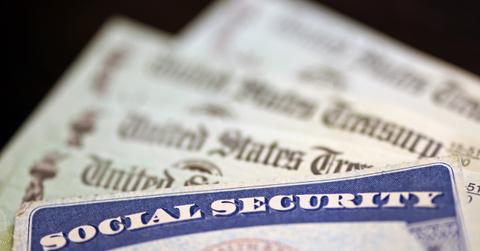Withholding Taxes From Social Security Checks Is Optional — Pros and Cons
Social security income might be one of your major sources of retirement income. Should you have taxes withheld from your social security check?
April 1 2022, Published 11:55 a.m. ET

Social security benefits work as a partial replacement for income for qualified retirees and disabled individuals. Around 68 million people, including retirees and disabled people, receive social security benefits. While they are among the three major sources of retirement income for Americans, many people have questions regarding the taxability of social security benefits and whether they should have taxes withheld from social security checks.
Contrary to the popular belief, social security benefits aren't completely tax-free. The taxable portion of the benefits will depend on the taxpayer’s income and filing status. Part of the benefits becomes taxable when you have other substantial income in addition to your benefits, such as wages, self-employment, interest, or dividends.
How are social security benefits taxed?
According to the IRS, you should add one-half of the social security money during the year to your other income.
- If you're single and the total comes to more than $25,000, part of your social security benefits may be taxable.
- If you're married and filing jointly, you should take half of your social security plus half of your spouse's social security and add that to all your combined income. If the total is more than $32,000, part of your social security may be taxable.

Should you have taxes withheld from social security check?
It isn't obligatory for you to have taxes withheld from your Social Security benefits. However, many people voluntarily choose to withhold taxes to cover any taxes that may come due. You don't need to get taxes withheld if this is your only income. However, if you expect a tax bill, according to the above IRS calculation, it's better to have a part withheld.
The U.S. taxation system is pay-as-you-go, which means that people are required to pay income taxes as they receive their income during the year. If you have underpaid your taxes at the end of the year, you might face a penalty.
The underpayment penalty on social security benefits can be avoided.
There are ways that you can avoid an underpayment penalty on social security benefits. You can choose to file Form W-4V with the Social Security Administration requesting a percentage of your monthly benefit to be withheld. You can have 7 percent, 10 percent, 12 percent, or 22 percent of your monthly benefit withheld for taxes, and only these percentages are allowed to be withheld. Flat dollar amounts aren't accepted. You’ll have to fill out Form W-4V and mail it to your closest SSA office.
You can have taxes withheld from other income, such as an IRA withdrawal or a pension. Another way is to keep sending quarterly estimated tax payments to the IRS.
The IRS won't impose an underpayment penalty if withholding or estimated payments equal at least 90 percent of your tax liability for the current year or 100 percent of your tax liability for the previous year.
